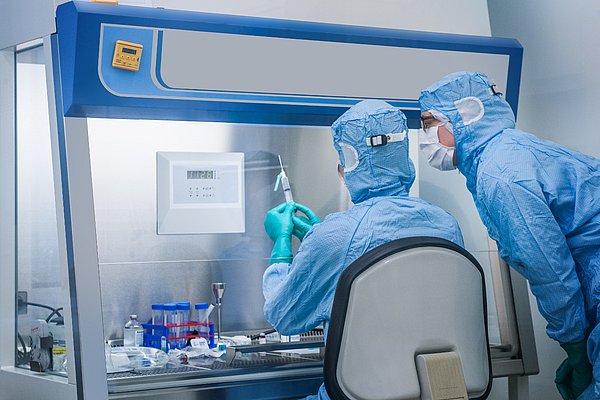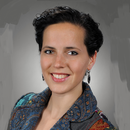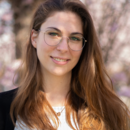The Hopp Children’s Cancer Center Heidelberg (KiTZ) is a joint institution of the German Cancer Research Center (DKFZ), Heidelberg University Hospital (UKHD) and the University of Heidelberg (Uni HD).
"Cellular immunotherapies achieve spectacular treatment successes in some patients, but have so far been used comparatively rarely in children," says Andreas Kulozik, Director at the Hopp Children's Cancer Center Heidelberg (KiTZ), Head of the Department of Pediatric Oncology, Hematology and Immunology at Heidelberg University Hospital (UKHD) and Head of the Clinical Cooperation Unit Pediatric Leukemia of the German Cancer Research Center (DKFZ). "Thanks to the newly established program for cell and gene therapy, we will soon be able to offer cellular immunotherapies for children and adolescents at KiTZ, which are already being used to treat leukemias and lymphomas and have shown very good results."
An important goal of the program is to work with the Heidelberg Center for Gene and Cell Therapy (HGCT) and the GMP (Good Manufacturing Practice) laboratory at UKHD, headed by Michael Schmitt, as well as other cooperation partners in Heidelberg and Mainz, to produce the immunotherapeutics and gene therapies for young patients directly on site in the future.
The cellular immunotherapies that will be used include so-called CAR T-cell therapies. The young patients' own immune cells (T cells) are first removed from their bodies and genetically modified outside the body so that they can recognize malignant cells and fight them more effectively. To do this, scientists equip the T cells in the laboratory with the gene for "chimeric" antigen receptors (CAR). These receptors can bind to specific surface structures on cancer cells and thereby direct the T cells specifically to the cancer cells. The CAR T cells are then multiplied, activated and transferred back to the patient - where they go on the hunt for the cancer cells.
"In certain types of childhood cancer, particularly leukemia and lymphoma, children and adolescents have already been treated very successfully with this approach, even when standard therapies have failed. Our aim is to provide patients with immune cells that can recognize and permanently control the cancer. In addition, immunological therapies can reduce the risk of therapy-related long-term consequences compared to intensive standard therapies, which is particularly important for our young patients," emphasizes Christian Seitz, who took over as head of the Cell and Gene Therapy program at KiTZ in February of this year. The pediatric oncologist is a senior physician at UKHD and also heads a research group at KiTZ. "In the long term, we want to gradually replace chemotherapy with these targeted treatments," says Seitz. Another important goal is the development of new CAR T-cell therapies for solid tumors such as brain tumors, bone and soft tissue cancer in children, for which there are currently no efficient immunotherapies. But here, too, there are already promising results from the laboratory, explains Seitz: "We are currently researching different approaches to making these tumors visible to the immune system and attracting immune cells to the tumors and activating them there."
The launch of the new program is also intended to further expand gene therapy for the treatment of severe blood disorders. Since 2020, KiTZ has been one of the first centers in the world to carry out gene therapy for the treatment of thalassemia, a congenital anemia that regularly requires transfusions. Gene therapy corrects the ineffective formation of the blood pigment hemoglobin in such a way that the resulting anemia and subsequent problems are prevented. "With modern genetic engineering methods such as CRISPR/Cas gene scissors, there is great potential to help children with this and other congenital diseases," says Andreas Kulozik. "We are extremely grateful to ODWIN gGmbH and its founder, Ms. Gerda Tschira, for their continued outstanding commitment to children in this region and far beyond!"




